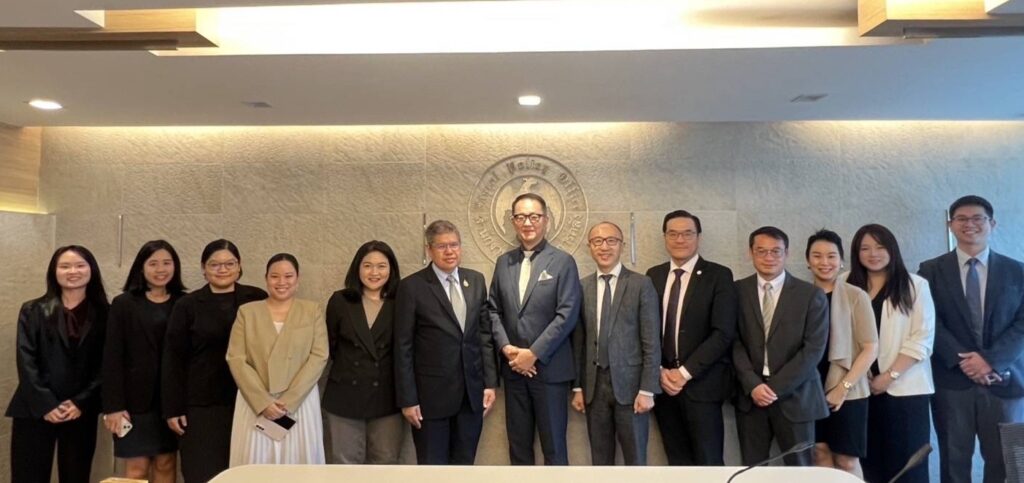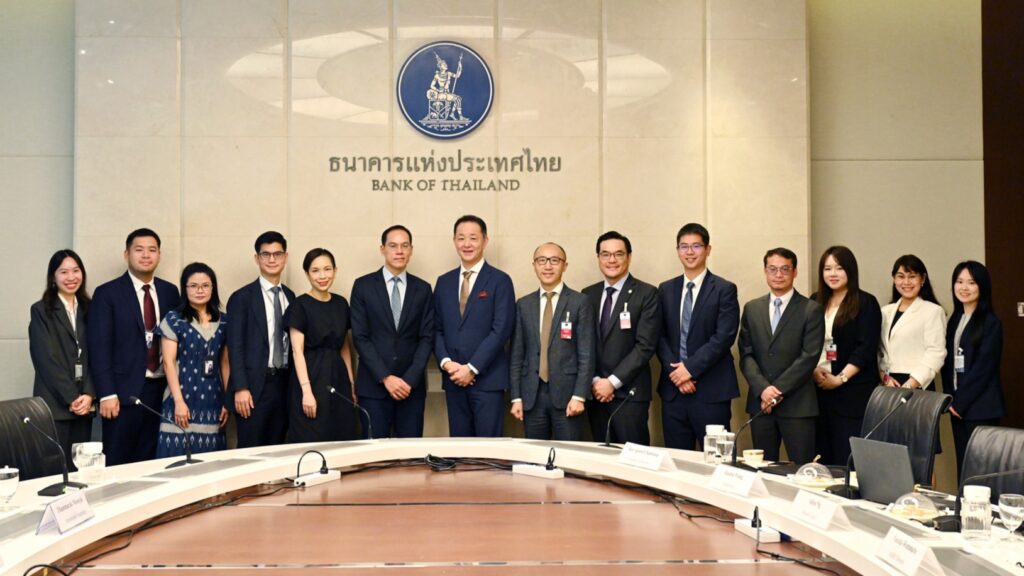
SINGAPORE, September 03, 2025 – Thailand’s economy faces a critical juncture as it balances immediate challenges with promising structural shifts. While domestic demand remains weak and requires continued policy support, rising investments in high-value sectors—including electric vehicles (EVs), electronics, and data centers—are creating pathways to more resilient growth.
Successfully navigating this transition will require coordinated policy action: maintaining supportive macroeconomic policies in the near term while leveraging foreign direct investment (FDI) as a catalyst for broader economic transformation.
This is the preliminary assessment from the ASEAN+3 Macroeconomic Research Office (AMRO) following its Annual Consultation Visit to Thailand from August 18-29, 2025. The mission was led by AMRO Group Head and Principal Economist Allen Ng, with AMRO Director Yasuto Watanabe and Chief Economist Dong He participating in policy meetings. Discussions focused on Thailand’s economic outlook, risks and challenges, and policy priorities to safeguard near-term growth and sustain longer-term economic transformation.
Economic developments and outlook
“While growth was higher than anticipated in the first half of 2025, we expect it to moderate to 2.2 percent for the full year and 1.9 percent in 2026, from 2.5 percent in 2024,” said Mr. Ng. The projected slowdown reflects the anticipated unwinding of front-loaded exports in the second half of 2025 and continued private sector weakness. “The immediate priority is to prevent a self-reinforcing downturn in domestic demand through well-calibrated policy support.”
Nevertheless, important shifts are underway that could strengthen growth prospects further ahead. These include a strategic pivot toward investment-focused fiscal spending and growing high-tech investments in EVs, electronics, and data centers. Recent improvements in private investment suggest that strong FDI applications are beginning to materialize into actual investment activity.
Inflation is projected to remain subdued at 0.5 percent in 2025 and 0.8 percent in 2026, mainly due to supply side developments.
Risks and vulnerabilities
External risks stem primarily from potential further escalation of US protectionism, geopolitical tensions, and slower-than-expected tourism recovery. Domestically, the key concern is a potential negative feedback loop where weak income growth, constrained credit, and political uncertainty reinforce each other, deepening the demand slowdown.
On the upside, sustained export momentum and accelerating high-value investments could deliver stronger-than-expected growth if the transition toward emerging sectors gains traction.
Policy recommendations
Macroeconomic policies should remain supportive in the short term to avoid a self-reinforcing downturn in domestic demand, particularly if weakness deepens.
The current accommodative monetary policy stance is appropriate, and there is scope to ease further if domestic demand proves weaker or more persistent than expected. Financial sector policy should balance addressing existing debt vulnerabilities with facilitating new productive credit.
Fiscal policy should continue providing targeted support, particularly for vulnerable groups, while maintaining a medium-term consolidation path to preserve fiscal sustainability.
Structural policy should revitalize domestic transformation to lift Thailand’s potential growth, requiring stronger execution of reforms in innovation, human capital, and infrastructure. Central to this is harnessing high-quality FDI as a catalyst: driving workforce upskilling, technology transfer, and stronger domestic linkages, including in secondary cities. This approach would deliver a more inclusive growth, upgrade industrial and service sector strengths—particularly in automotive, electronics, and digital services—and enhance Thailand’s overall global competitiveness.
The AMRO team would like to express its gratitude to the Thai authorities and other participating organizations for their cooperation and candid exchange of views during the mission.
Read the Thai-language summary of AMRO’s press release on the Bank of Thailand or the Royal Thai Government websites
About AMRO
The ASEAN+3 Macroeconomic Research Office (AMRO) is an international organization established to contribute toward securing macroeconomic and financial resilience and stability of the ASEAN+3 region, comprising 10 members of the Association of Southeast Asian Nations (ASEAN) and China; Hong Kong, China; Japan; and Korea. AMRO’s mandate is to conduct macroeconomic surveillance, support regional financial arrangements, and provide technical assistance to the members. In addition, AMRO also serves as a regional knowledge hub and provides support to ASEAN+3 financial cooperation.

AMRO Director Yasuto Watanabe, Chief Economist Dong He, and the mission team met with the Fiscal Policy Office’s Deputy Director General Rit Syamananda and other senior officials from Thailand’s Ministry of Finance.

AMRO Director Yasuto Watanabe, Chief Economist Dong He, and the mission team met with the Bank of Thailand’s Deputy Governor Piti Disyatat and other senior officials
